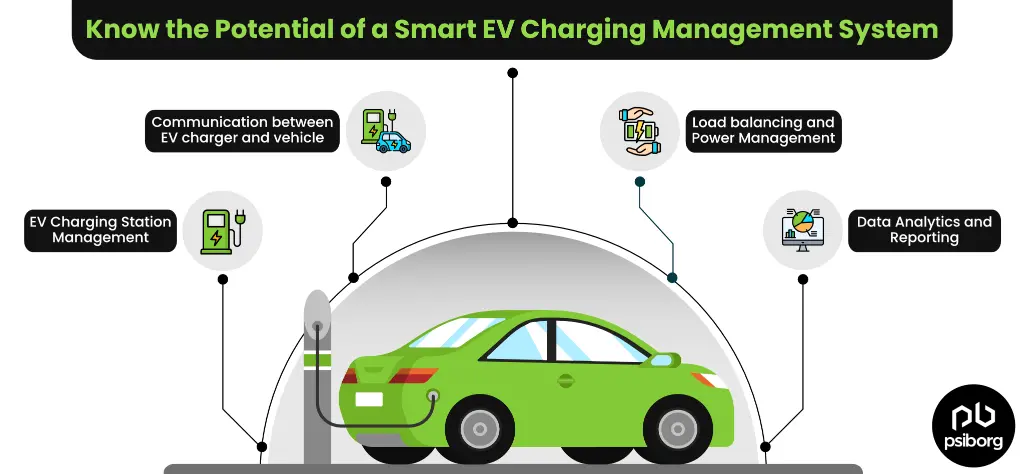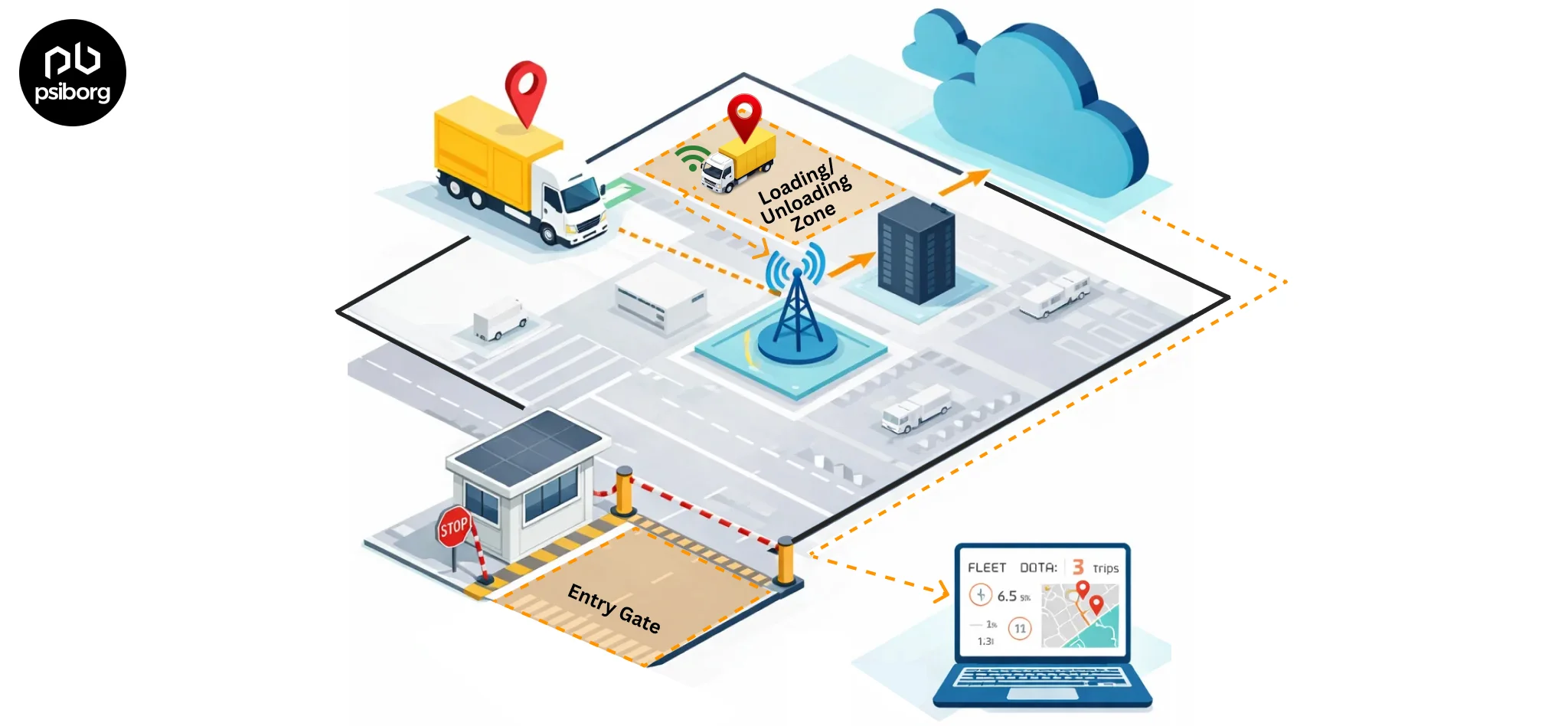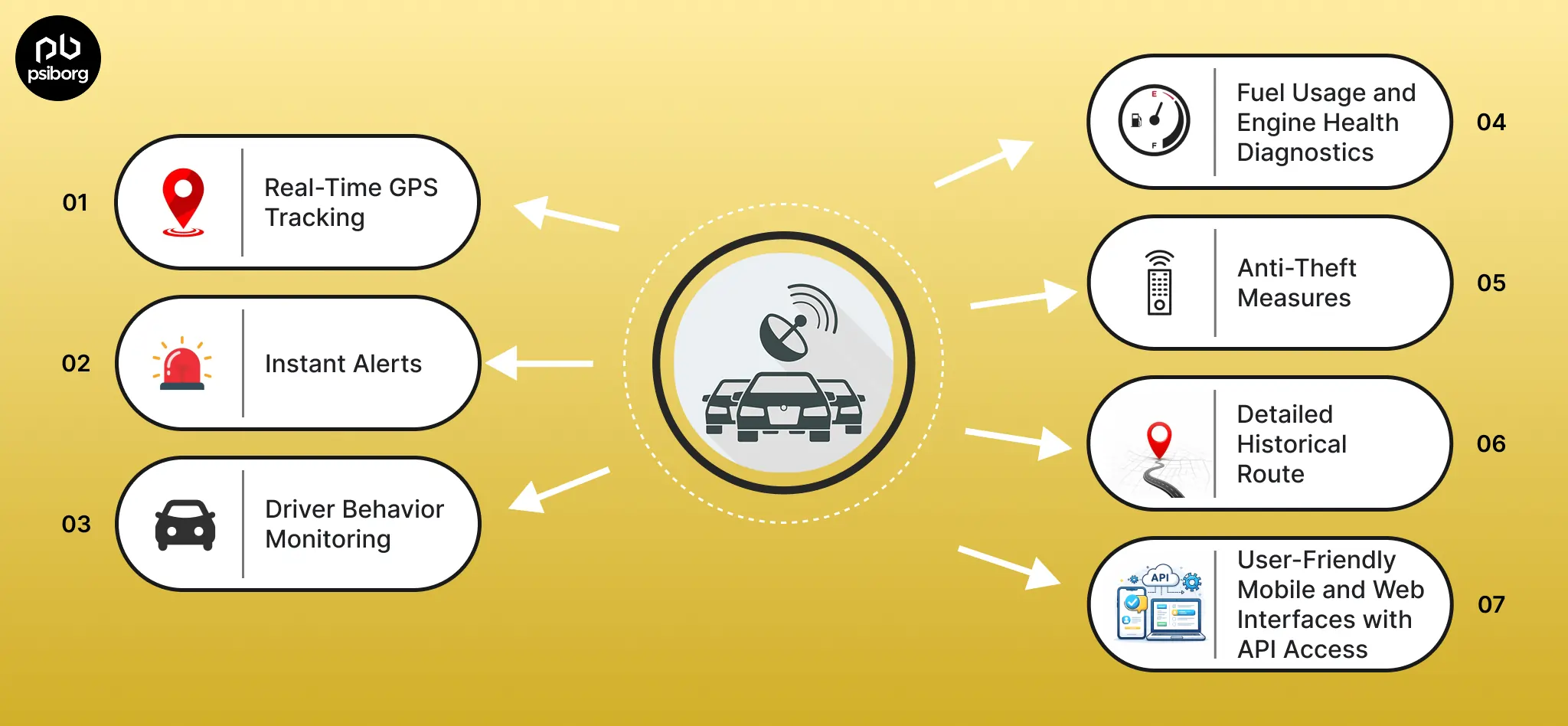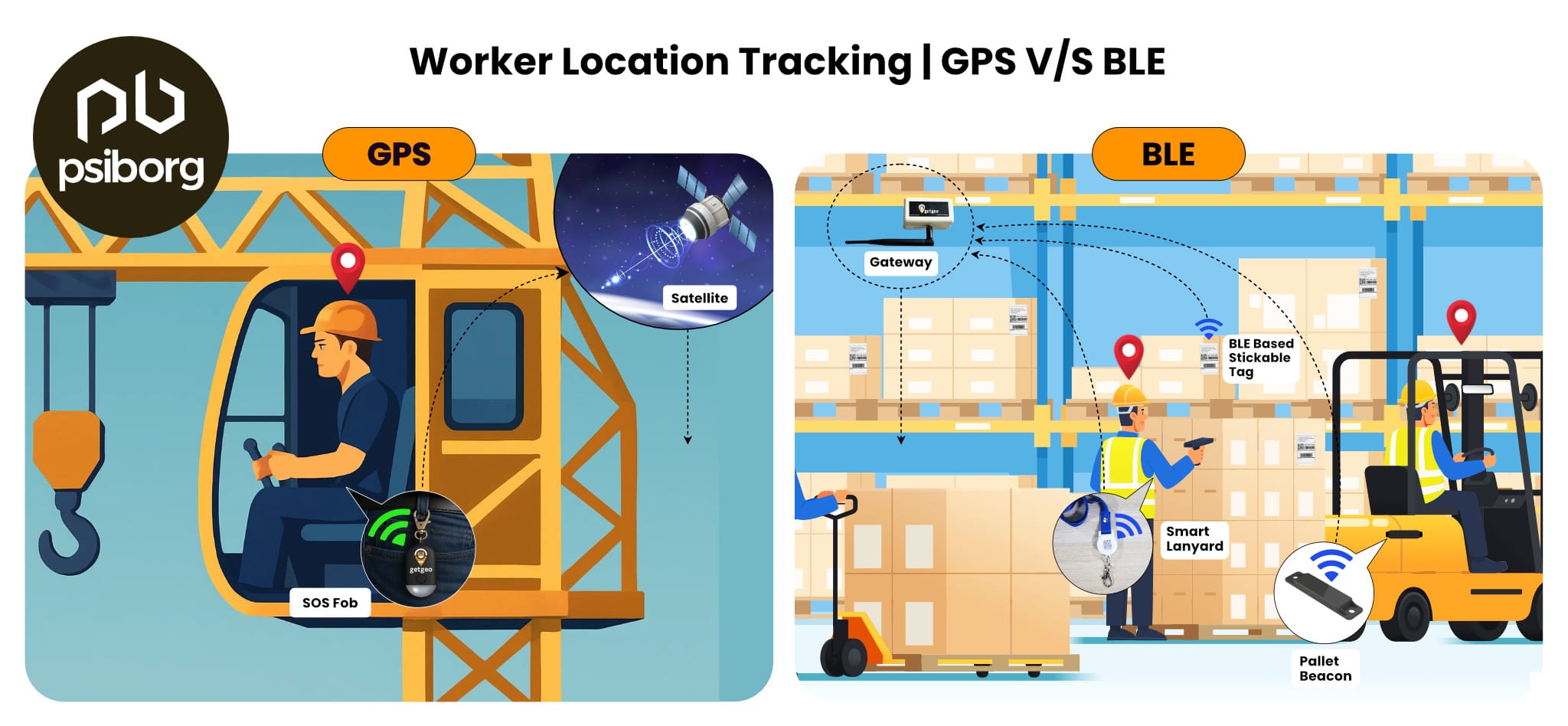Once, there was a time when EVs were considered the future of our generation. Today, EVs have become a reality. Also, the increasing prices of fuel have eventually led people to buy electric scooters and electric cars.
The sudden shift from traditional fuel-powered vehicles to EVs drives a global push toward reducing carbon emissions and mitigating the effects of climate change.
However as EV adoption has increased, there has been a sharp increase in demand for EV infrastructure, necessitating the establishment of a dependable and effective EV charging infrastructure.
But then, the increasing demand for a better EV infrastructure doesn’t mean only installing more and more charging points.
It requires a comprehensive approach to ensure these points are managed effectively, are easily accessible, and are totally capable of meeting the evolving needs of EV users.
This can only be achieved by using Internet of Things (IoT) technology.
In the context of an entire EV infrastructure, IoT acts as a technical backbone that allows the development of smart and interconnected charging stations.
This article is written to explain the role of IoT in improving the EV charging infrastructure and about an EV charging management system.
Electric Vehicles (EV) Charging Management System
Electric Vehicles (EVs) need a charging station similar to how fuel cars need petrol pumps.
But unlike 2mins instant fuel tank fill-up, the charging of EVs takes some time.
Also, the available EV charging stations are very disordered and unconnected. They do manual data collection of the energy usage information. This hinders an operator’s ability to control charging station operations in real time.
This is why, IoT technology is required, which makes the entire charging process efficient and user-friendly.
IoT technology assists in regulating charging current, monitoring energy usage, changing charging priorities, and much more.
The Electric vehicle management and monitoring solutions developed on the same technology offer near real-time monitoring of the EV charger’s activities and make things simpler for the EV charge owners.
Through an EV charging management system, the EV charger owner can manage and monitor the charger utilization, its data, and billing records, and the maintenance of data from multiple charge points gets easier through the CMS.
The charging management system also facilitates communication between the electric vehicle and the charger.
This communication is important so that the charger can supply the amount of energy required by the electric vehicle. Thus, this involves communication between the CMS (charging management system) and BMS (battery management system).
Charging of Electric Vehicle Through Communication Between CMS and BMS.
The charging of an EV is based on the input taken by the electric vehicle and the output provided by the EV charger.
In simple words, the charging process of EVs relies on effective communication between the Charging Management System (CMS) and the Battery Management System (BMS).
This communication helps in understanding the battery’s charging needs for the electric vehicle and effectively supplies the required current.
Suppose you own an electric car with a battery capacity of 30kW, but it currently holds a charge of 5kW. Additionally, you have access to a 60kW EV charger.
So, through the communication between the BMS and CMS, the battery will demand only 25kW from a 60kW charger and the EV charger will provide the required current to the car.
The smart EV charging management system that we developed at PsiBorg Technologies allows data exchange between the vehicle and charging stations. The system uses IoT devices on vehicles, a cloud platform for data analysis, and a dashboard
So, if the vehicle is running low on battery, the system will search for the nearest available charging station and will guide the vehicle to the charging point.
List of Challenges Faced by EV Charging Stations
Let’s explore some common challenges and how smart systems tackle them:
1. Improper Charge Scheduling
With no proper scheduling system at a charging station, vehicles may jump into the queue or occupy the EV charging station, leading to chaos, mismanagement, and complaints from vehicle owners.
(The smart EV charging management system effectively schedules the vehicles, thus managing charging operations for EVs)
2. Range Anxiety and Trip Planning
EV owners always face this anxiety of finding EV charging stations on long trips, making it tough to plan trips with the constant fear of where and how they can get charging.
(IoT-based charging systems can optimize your trip by suggesting the best path based on your vehicle’s range, distance to destination, and locations of charging stations. )
3. Incomplete Load Management
In a disorganised and unplanned traditional EV charging system, it’s difficult to manage the overall load on the grid. Uncontrolled charging can lead to overloading during peak hours, stressing the grid and potentially causing brownouts.
(Smart systems monitor grid demand and optimize charging accordingly. They can prioritize charging during off-peak hours or adjust power delivery to prevent overloading.)
4. No Remote Operations
Traditional charging stations require manual intervention for troubleshooting, maintenance, and configuration updates. They can not be remotely controlled or maintained.
(Smart systems enable remote monitoring and management. Operators can identify issues remotely, diagnose problems faster, and deploy maintenance crews efficiently. )
5. Inactive Charging Stations
Sometimes, charging stations might lie unused due to a lack of real-time information on availability.
(Smart systems provide real-time data on station availability through mobile apps. This helps users locate active stations and avoid wasted trips.)
Key Components of an IoT-based EV Charging Management System
A typical system comprises the following components:

Smart Charging Stations: Equipped with sensors, communication modules (Wi-Fi, cellular), and controllers that gather data, connect to the network, and manage charging processes.
The features include:
- EV and power grid connections
- Port engage and disengage
- Charging start/stop
- Energy metering
- Troubleshooting
Cloud Platform: A central hub that stores and analyzes data from charging stations, facilitates communication, and provides user access.
The cloud platform performs:
- Data collection and analysis
- Remote monitoring
- Load balancing
- Firmware upgrades
- Alerts and notifications
Mobile App: An interface for users to locate stations, check availability, initiate charging, monitor progress, and make payments.
Some important features of the mobile app are:
- Charging station navigation
- Charging station reservation
- Charging start/stop
- Scheduled charging
- Billing and payments
Key Features and Benefits of EV Charging Management System
The benefits that an IoT-based charging management system offers are:
1. EV Charging Station Management
The smart system provides charging station operators with a central platform for monitoring and managing their entire network of charging stations. They can track the status of the stations, identify potential problems (e.g. defective devices), and schedule maintenance work remotely.
This lowers expenses and enhances the user experience by guaranteeing maximum uptime and effective station operation.
2. Communication between EV charger and vehicle
Smart charging stations integrated with IoT technology can communicate directly with EVs. This two-way communication allows for features like dynamic charging adjustments based on battery health and user preferences.
For instance, fast charging or prioritizing a full charge by a certain time.
Additionally, it facilitates secure authentication and billing processes.
3. Load balancing and Power Management
It’s considered one of the critical features; load balancing ensures efficient energy distribution across the grid.
The system monitors real-time electricity demand and intelligently distributes power to charging stations. This prevents overloading during peak hours, contributing to grid stability and reducing the risk of blackouts. It can also integrate with renewable energy sources like solar panels, allowing EVs to charge using clean energy when available.
4. Data Analytics and Reporting
The system collects valuable data on charging patterns, station usage, and electricity consumption.
This data is further analyzed to gain insights into user behavior, identify areas for network expansion, and optimize charging infrastructure investment.
Additionally, it helps operators understand energy costs and implement strategies for cost reduction. By providing comprehensive reports, the system allows data-driven decision-making for a more efficient and sustainable charging network.
To Conclude,
The EV charging management system is an efficient and need-of-an-hour solution for the entire EV charging infrastructure. Businesses have started realizing this, and so there has been an increase in the adoption of automotive embedded devices and IoT in the automotive industry
The smart EV charging management system helps simplify the operations of EV charger owners, charge point operators, and EV charging service-providing companies.
The system offers centralized control, real-time monitoring, and dynamic charging optimization to ensure effective utilization of charging infrastructure. At the same time offering convenience to EV owners.
So, it’s basically a win-win situation for everyone.
Being an IoT development service-providing company, PsiBorg Technologies has several years of experience in developing smart city solutions for all industries, including the EV industry.
At PsiBorg, we help businesses by developing smart, innovative IoT solutions. Reach out to us with your requirements, and let’s discuss the solution!
FAQs
EV charging management system is an IoT-based smart system that allows EV charging operators and EV service providers to manage all aspects of EV charging. The aforementioned smart system makes sure that EVs are always charging as quickly as possible without overloading the system by providing real-time monitoring of available electric capacity and distribution of that capacity between stations.
The smart EV charging system creates an interconnected ecosystem to upgrade the charging process. It allows communication and data exchange between all the EV components, be it the EV charger, the electric grid, or the vehicle itself.
In general, there are two EV charging systems- the AC chargers and the DC chargers.
An EV vehicle requires 7-8 hours to fully charge on an AC charger due to its slow charging speed.
Whereas, the DC chargers are fast compared to the AC chargers and can charge the vehicles in less than an hour.
BMS stands for battery management system, it is used in EVs to monitor the battery pack’s State of Charge (SoC) along with its State of Health (SoH). BMS also manages battery optimization to improve battery life.





